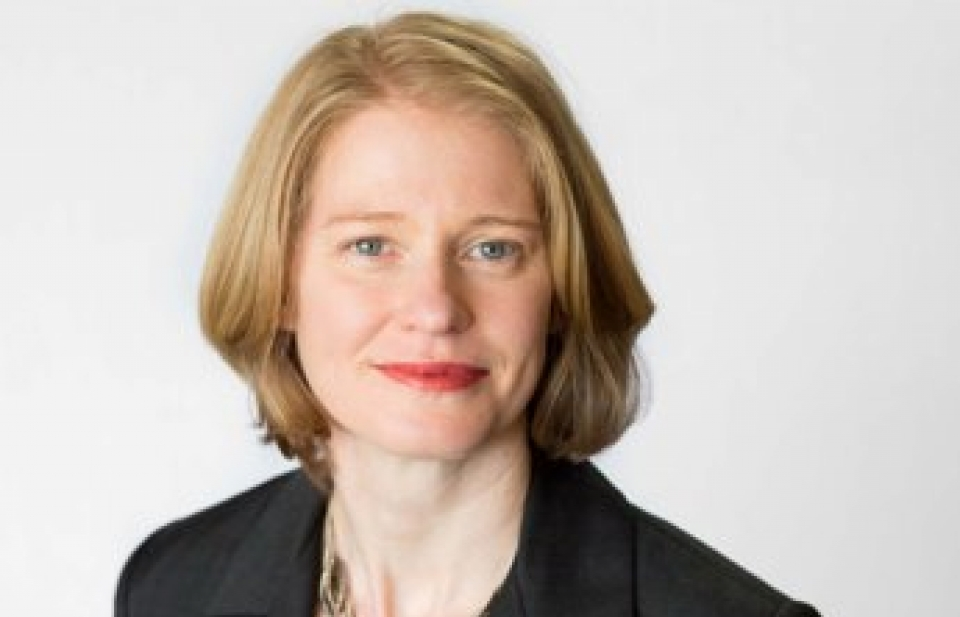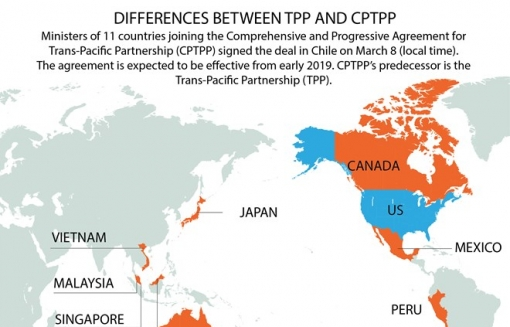
Finding common voice in achieving Bogor goals
Latest
| TIN LIÊN QUAN | |
| APEC Senior Officials’ Meeting begins in HCM City | |
| APEC’s Role at New Conjuncture | |
How do you assess the prospect for economic liberalization in APEC, specifically the Bogor goals?
At present, the world is talking about the rise of protectionism. However, I personally question it. Since its inception in 1989, APEC has harvested fruits in many areas, particularly in economic integration among its members.
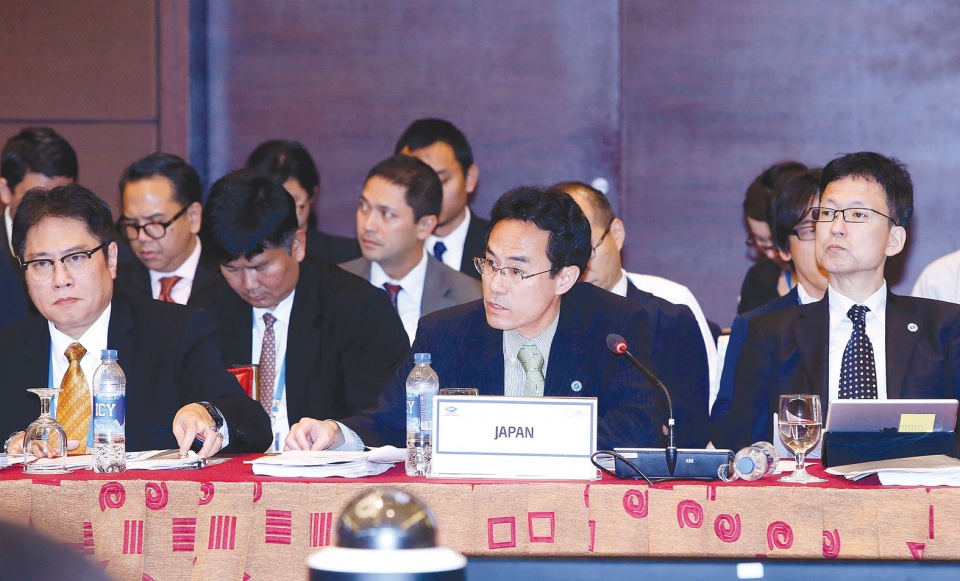 |
| Center - Head of Japanese SOM Tsutomu Koizumi, Deputy Director General of the Department of Economic Affairs (Ministry of Foreign Affairs of Japan). (Photo: TGVN) |
The combined APEC GDP now accounts for more than 60% of world GDP, estimated about 44,300 billion USD. APEC also takes in about 50% of world trade, estimated about 17,800 USD billion. It has a population of 2.84 billion, accounting for 40% of the world population. APEC constant efforts have contributed to the present development and prosperity of Asia and the Pacific.
As an APEC founding member, Japan has always given weight to the role of APEC. In the context of changing business environment, e-trade, and rising protectionism, APEC plays a more important role in promoting and facilitating liberalization of trade and investment in the world.
Adopted by the Second APEC Economic Leaders’ Meeting in 1994, the Bogor goals define APEC as a most dynamic area of trade and investment liberalization and a priority running through APEC. The Bogor goals have charted the course for APEC activities for 1994-2020. I think when we talk about these goals we should discuss what APEC members should do to ensure a shared future of comprehensive cooperation in Asia and the Pacific.
APEC Year 2017 plays an important role in achieving those goals. This is the second time that Vietnam hosts important APEC meetings culminating in the Economic Leaders’ Meeting. These meetings embrace many concerned parties, not only government officials but also academia and business circles. This presents a golden opportunity for them to exchange views to find a common voice. As a representative of the Japanese Government, I think it is important that senior officials of 21 member economies make great efforts to convey the lessons and experience in trade and investment of their own countries and work together to actualize the Bogor goals in the interest of all member economies.
| Former Deputy Prime Minister Vu Khoan: "I hope that APEC would serve as a bridge to promote cooperation. APEC Vietnam 2017 marks an important milestone. Vietnam will do its best to maintain APEC vitality. I think that in order to achieve the Bogor goals, APEC should hold aloft the banner of trade and investment liberalization. More than anyone else, APEC should stay in the vanguard." |
Many countries including Japan and Vietnam have pinned hope on TPP. The U.S., however, has withdrawn from the Agreement. What is the fate of this Agreement?
TPP has not come to a complete end but is frozen for some time. Even though it is not an APEC agenda item but it is a road to the Asia and Pacific Free Trade Area. TPP only embraces 12 signatories, it is open to further accession.
Japanese Prime Minister Shinzo Abe has repeatedly discussed with President Donald Trump the economic and strategic importance of TPP to Japan, the Asia and Pacific region and the world. The U.S. President has been positive in those conversations. I personally think the U.S. would come back to the TPP with some necessary changes.
APEC members have paid adequate attention to development balance. What can more developed countries, particularly Japan, do to help other members within the APEC framework?
Japan can help other members in many areas such as capacity building, environment protection and service provision, etc. However, I think that the definition of developed and developing countries is increasingly vague as some developing countries have seen very rapid development and would become developed ones in a very near future. Therefore, we should not continue to divide countries into developed and developing ones. I also think that assistance among members should always be provided within the APEC framework. What is more important is to ensure harmonious development among APEC member economies and as a matter of fact we are already doing it.
| Mr. John Drummond, Head of Trade in Services, Trade and Agriculture Department, the OECD: "All APEC practices and objectives aims at a region of trade liberalization in Asia and the Pacific to increase prosperity for all citizens of different economies and many roads lead to it. TPP is one way while RCEP is another. All initiatives, TPP, RCEP or others, provide correct orientations for cooperation among APEC member economies." |
As an emerging economy, China have led many multilateral mechanism such as the Asian International Investment Bank, the One Belt One Road Initiative, the Regional Closer Economic Partnership. What is your view on China’s rise and its role in APEC?
I am of the view that all ideas are welcome. As different political systems, thoughts and legal frameworks exist in APEC, therefore, instead of aiming at something concrete, we adopt a flexible attitude to ideas and future discussion. Any initiatives proposed by APEC would, at the end, be legally bound by major agreement like the WTO, hence supporting trade and improving the environment. All ideas should be accepted in such a way, however, it is most important to ensure equality, openness, liberalization and benefit to all.
Thank you!
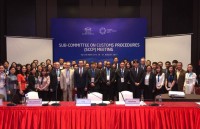 | APEC economies work for more transparent, participatory trade negotiations How to achieve more transparent and participatory trade negotiations is the main focus of a workshop in Ho Chi Minh City on August 20. |
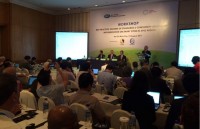 | Best practices on developing smart cities in APEC shared Nearly 100 delegates from 21 member economies of the Asia-Pacific Economic Cooperation (APEC) discussed best practices sharing of standards and conformity assessment implementation on smart ... |
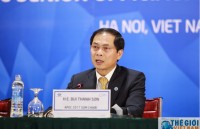 | Vietnam active in APEC Business Advisory Council’s meeting Vietnam’s Deputy Foreign Minister Bui Thanh Son, in his speech at the plenary session of the APEC Business Advisory Council (ABAC)’s third meeting in 2017 ... |




